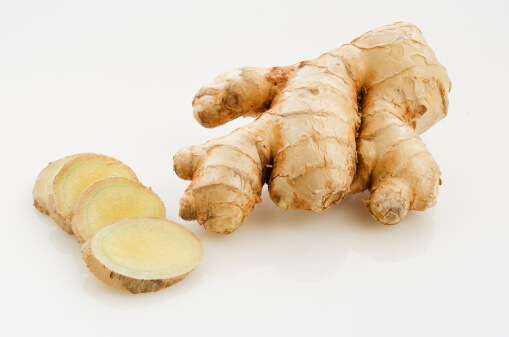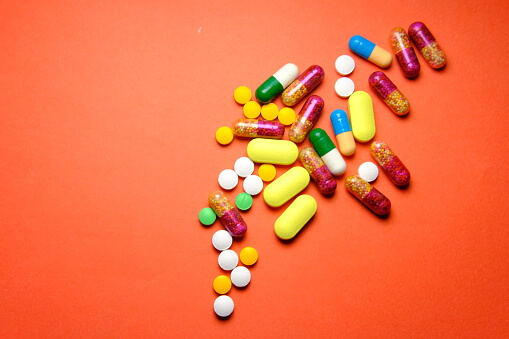Take Your Health to the Next Level with the Power of Ginger
8 years ago | Nutrition
By Joy Stephenson-Laws, JD, Founder
Ginger root, more commonly called ginger, is a flowering plant believed to have originated in southeastern Asia. It was reportedly introduced to Jamaica in 1525, which may explain why many Jamaican dishes incorporate this delicious, aromatic spice. You may be familiar with Jamaican ginger beer, a refreshing non-alcoholic drink that can be enjoyed alone or used as a cocktail mixer.
Ginger is available year-round and used as a spice for flavoring dishes, like chicken and stir fries.
It’s spicy and sweet flavor makes a great addition to smoothies, teas and marinades for meats, fish and vegetables.
Ginger has been used in ancient medicine to help aid digestion, relieve stomach issues and fight ailments, like the flu and common cold. The National Institutes for Health (NIH) summarized the benefits of ginger, which include treatment for a number of “ailments including degenerative disorders (arthritis and rheumatism), digestive health (indigestion, constipation and ulcer), cardiovascular disorders (atherosclerosis and hypertension), vomiting, diabetes mellitus, and cancer. It also has anti-inflammatory and anti-oxidative properties for controlling the process of aging.”
Let’s take a closer look at some of ginger’s star power.
Ginger & Cancer.
Ginger is rich in the bioactive compounds gingerols, shogaol, and paradols. These materials have antioxidant and anti-inflammatory properties, which may help decrease the risk for all types of cancer.
For example, the NIH reports that ginger may inhibit cell growth in ovarian cancer cells.
Another study suggests ginger caused apoptosis (cell death) in prostate cancer cells.
Ginger & Diabetes.
Fasting blood sugar (FBS) measures blood glucose after you have not eaten for at least eight hours. A fasting blood sugar level less than 100 mg/dL (5.6 mmol/L) is normal. An FSB level from 100 to 125 mg/dL (5.6 to 6.9 mmol/L) is considered prediabetes. If it's 126 mg/dL (7 mmol/L) or higher on two separate tests, you have diabetes.
Studies, such as this NIH study, suggested ginger supplementation significantly reduced FBS in type 2 diabetic patients.
Ginger & The Brain.
There is some evidence that ginger root extract may improve memory and reduce Alzheimer's disease-like symptoms.
Ginger & Beauty.
Ginger reportedly does wonders for the skin. It may increase blood circulation, which can help the skin maintain a youthful and vibrant appearance. Since it contains powerful antioxidants, ginger may fight signs of aging caused by free radical damage. Ginger is also known to have antibacterial properties, which may help fight acne. Some people swear by applying ginger directly to the face as a mask. To learn how to make this mask, click here. It’s worth a try and a great way to use up extra ginger you may have in your kitchen. Just test a small area of your skin before you apply to your entire face.
Ginger & Nausea.
A study was performed on 363 patients experiencing postoperative nausea and vomiting. This feeling of sickness may last for at least 24 hours after surgery. The patients who were administered just one gram of ginger had significant relief.
Pregnant women who experience morning sickness may also turn to ginger for relief. Just talk to your doctor about incorporating ginger into your diet if you are pregnant. Some reports say too much ginger during pregnancy may increase risk of miscarriage, but in moderation it is usually fine. And a little goes a long way with ginger. It’s spicy, aromatic flavor is strong.
You likely recall drinking ginger ale as a kid when you had an upset stomach, but consuming fresh ginger helps you avoid drinking a sugary, processed beverage.
Ginger & Muscle Pain.
Ginger is very rich in potassium (about 100 mg in ¼ cup). A possible result of low potassium levels is getting pesky leg cramps. On top of that, “[g]inger consumption before exercise might reduce naturally occurring quadriceps muscle pain during moderate-intensity cycling exercise. This effect may be due to anti-inflammatory effect of ginger…” according to the NIH.
And about ¼ cup of sliced ginger includes the following nutrients:
- Calcium, 4 mg. Of course, calcium is important for building and maintaining strong bones and teeth. This mineral is also important for maintaining hair and nail health in perimenopausal and menopausal women. Adequate calcium intake may also decrease your risk for colorectal cancer.
- Magnesium, 10 mg. This mineral helps regulate blood pressure, contributes to bone metabolism and has antioxidant functions. Magnesium is also great for pain management. Many people use magnesium as a safe alternative to ibuprofen or acetaminophen. Magnesium may even help alleviate leg cramps women may experience during pregnancy.
- Phosphorus, 8 mg. This mineral often does not get the credit it deserves, but it does so much for your body. Phosphorus is almost as abundant in your body as calcium and helps calcium build strong bones and teeth. Phosphorus is also important for how your body stores and uses energy, repairs cells and is needed to make proteins like the one responsible for the oxygen-carrying capabilities of our red blood cells. This mineral has also been linked to weight management. In a study of almost 40,000 women in Korea, phosphorus deficiency correlated with weight gain from oral contraceptives. Furthermore, a study from Lebanon showed that phosphorus supplements in a small group (63 people) for 12 weeks significantly decreased body weight, BMI, waist circumference and subjective appetite scores.
- Choline, 6.9 mg. Choline was classified as an essential nutrient by the Institute of Medicine (IOM) in 1998. This nutrient is needed for many bodily functions, including lipid transport and cell metabolism. It also plays an important role in memory and brain development in human fetuses.
Other nutrients found in ginger include folate, B6, riboflavin, niacin, zinc, vitamin C and protein.
So how can you incorporate ginger in your diet?
There are endless ways to spice up your life with ginger. You can add powdered ginger to dishes, but I prefer to use fresh ginger. Just peel it, grate it and add to a smoothie. You can also make ice cubes with grated ginger and add to water for some flavor. And you can purchase ginger tea at the grocery store.
Enjoy your healthy life!
The pH professional health care team includes recognized experts from a variety of health care and related disciplines, including physicians, attorneys, nutritionists, nurses and certified fitness instructors. To learn more about the pH Health Care Team, click here.







